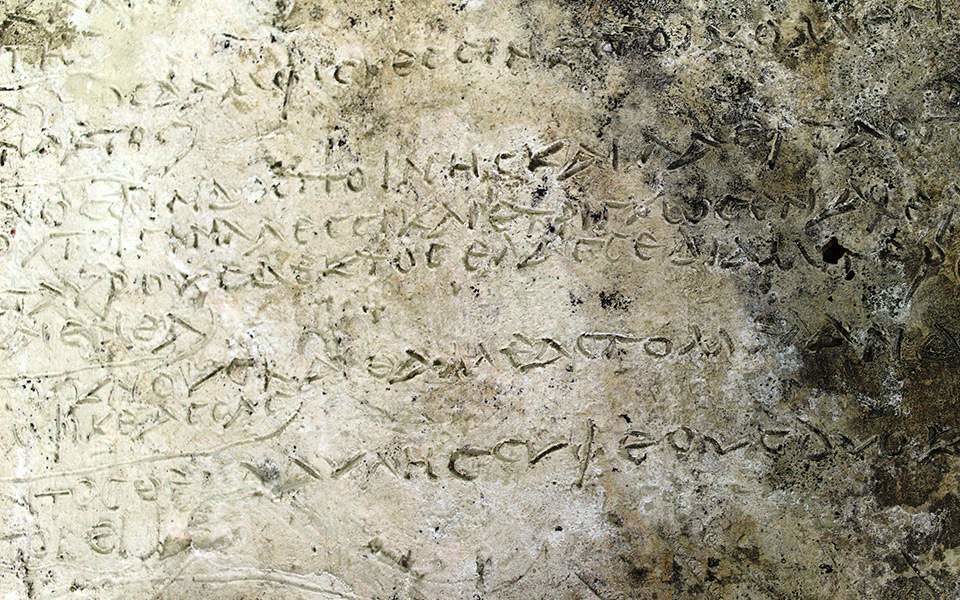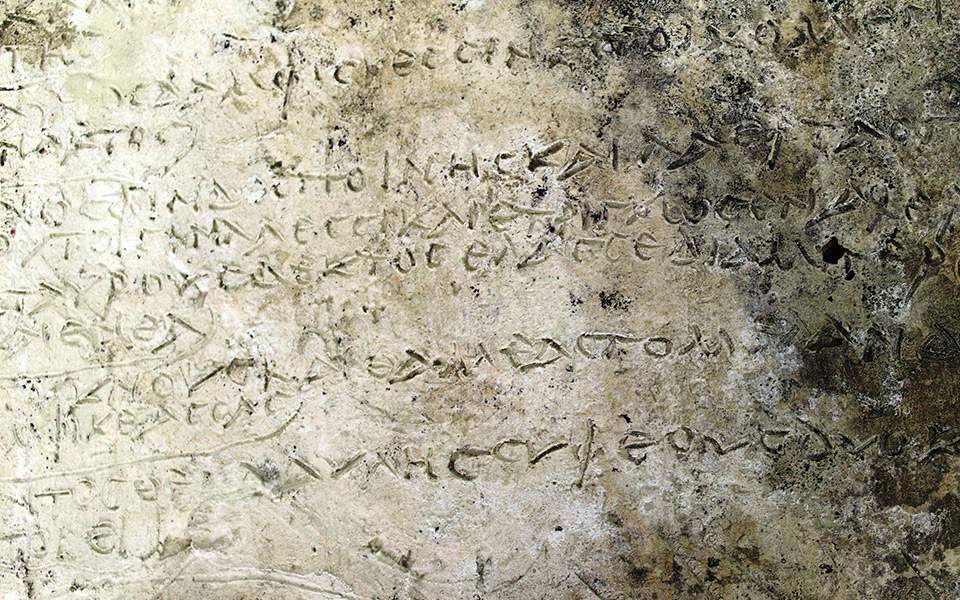by Aggelos Skordas
A team of Greek and German archaeologists have revealed clay plaque of what appears to be the oldest known extract of Homer’s epic poem The Odyssey in the archaeological site of Ancient Olympia, Peloponnese, home to the ancient Olympic Games.
In the course of the surface – geoarchaeological research, within the framework of the three-year research program titled “The Multidimensional Site of Olympia”, which takes place around the sanctuary under the direction of Dr. Erophilis-Iris Koleda, head of the Ilia regional unit Ephorate of Antiquities, in collaboration with Professors Franziska Lang, Birgitta Eder, Andreas Vött and Hans-Joachim Gehrke of the German Archaeological Institute and the Universities of Darmstadt, Tübingen and Frankfurt am Mainz, who identified a particularly important finding, read the announcement issued on Tuesday by the Greek Ministry of Culture.
In a position adjacent to the sanctuary of Olympia with remnants of the Roman era, they found a clay slab with engraved inscription. After the completion of the necessary preservation at the local Ephorate of Antiquities, it was discovered that it contains 13 verses from the rhapsody of Odyssey (Odysseus’ speech to his lifelong friend Eumaeus). Preliminary estimates date the finding to the Roman era, probably before the 3rd century AD, although its date has not yet been fully confirmed.
The finding, the Greek Ministry of Culture says, “is beyond its uniqueness, a great archaeological, epigraphic, philological and historical exhibit”.
The Odyssey, a fundamental work to modern Western canon, is one of the two major ancient Greek epic poems attributed to Homer. A sequel to the Iliad -the first and oldest epic work ascribed to Homer- it is the second oldest extant work of Western literature. It is believed that Homer composed it between 675 and 725 BC in Ionia, the Greek coastal region of Anatolia (Asia Minor), present day Turkey. In 12,109 lines of poetry it narrates the tales of the king of Ithaca Odysseus, who after the Trojan Wars and the fall of Troy wonders for 10 years in an attempt to reach his home island.


